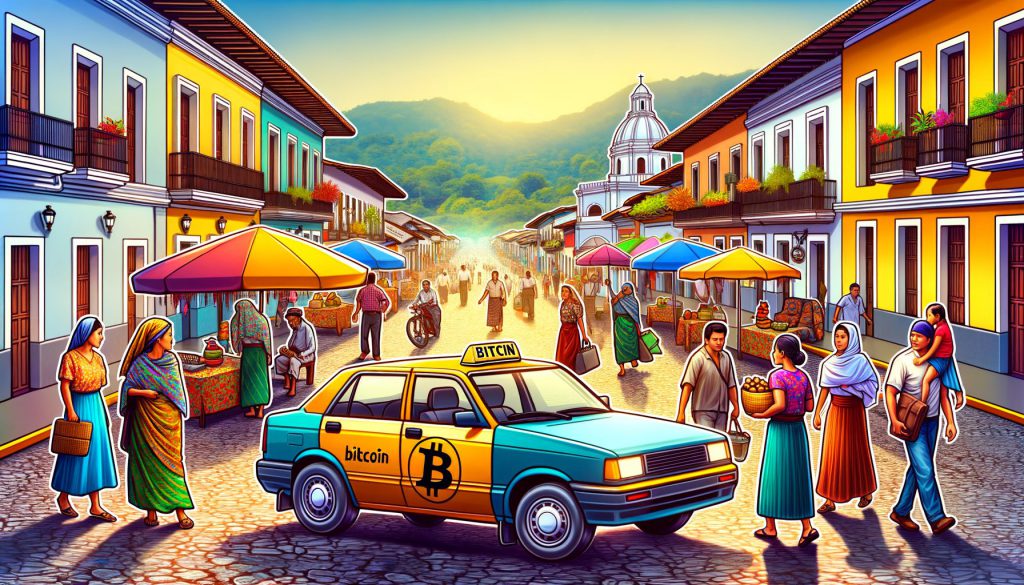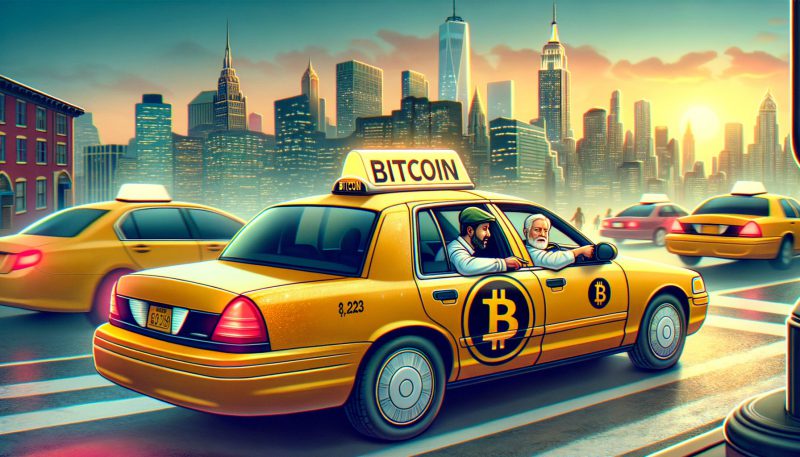The cryptocurrency market has witnessed an array of rags-to-riches stories. This, however, has been the case mainly for meme coin investors. But in a new turn of events, Bitcoin (BTC), the world’s largest cryptocurrency, changed the life of an El Salvadorian Taxi Driver.
Also Read: Putin’s Bitcoin Boom: $3 Billion Gain Last Year, Now Eyeing Market Dominance
El Salvador’s Bitcoin Adoption And Osorio’s Journey


El Salvador has been making headlines in the cryptocurrency industry for openly embracing Bitcoin. Amidst this, Napoleon Osorio, a taxi driver, jumped onto the BTC bandwagon.
The First Taxi Driver To Accept Bitcoin
About three years ago, at 39, Osorio emerged as the first taxi driver to accept the king coin as payment. John Dennehy, the creator of the nonprofit organization My First Bitcoin, first exposed him to cryptocurrencies. Osorio adopted the digital realm and started taking Bitcoin via a mobile app for his cab services.
Also Read: Ripple Rally Incoming as Analyst Says XRP’s in Best Position Since 2017
Entrepreneurship Via Bitcoin


Following this, he could start a business and buy his very own taxi. Osorio currently runs Bit-Driver, a company that has hired twenty-one drivers, and he used the money he made from Bitcoin’s increase in value to buy four rental cars. He further said:
“Before, I was unemployed… and now I have my own business.”
Government Support And Financial Inclusion
Osorio’s financial struggles have since subsided. This was possible only because El Salvador became the first nation to adopt Bitcoin as legal tender. President Nayib Bukele took this step to boost the country’s financial inclusion.
The Chivo Wallet Initiative
The government rolled out the Chivo Wallet, keeping transaction fees in mind. This digital platform gives El Salvadorans fee-free access to send and receive BTC. New users even received $30 worth of BTC as a welcome gift.
Also Read: Will Trump vs Harris Debate Affect Bitcoin’s September Price Pace?
Despite the government’s efforts and Osorio’s story, reports showed that 88% of the country’s population barely used the king coin.





